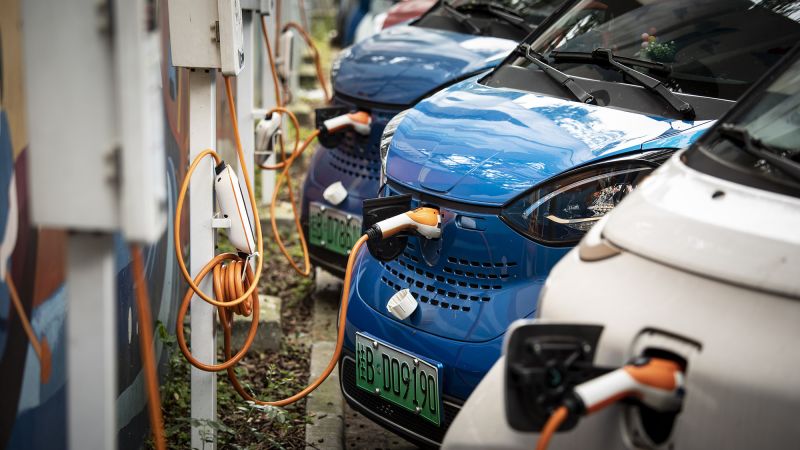The electric vehicle (EV) market in China, the world’s largest, is facing a life and death race as over 200 EV manufacturers grapple with oversupply and fierce competition. Despite government support and some companies growing rapidly to become global players, many smaller companies are predicted to struggle to survive in the challenging environment. Some global automakers have also faced setbacks, leading to layoffs and factory closures. Chinese officials have warned that competition in the new energy vehicle industry will be extremely fierce in the coming years.
Aggressive price cuts have become a major challenge in the Chinese EV industry, leading to a price war that has engulfed the country’s auto industry. Tesla and other Chinese car brands have been slashing prices to attract buyers, squeezing profitability for manufacturers. The oversupply of EVs in the market has exacerbated the situation, with more than 110 new NEV models expected to launch in 2024, despite forecasts of limited market demand. Many companies are racing to increase sales, even as the market faces the risk of cash flow problems and potential crises.
As more companies enter the already overcrowded EV market in China, competition is expected to intensify, leading to further consolidation in the industry. Leading Chinese EV companies like Geely Auto and BYD have predicted a brutal elimination round, with CEO Wang Chuanfu stating that companies need to establish economies of scale and brand advantages to survive. Industry insiders anticipate that more small-to-medium-sized companies may be wiped out in the coming months as the industry undergoes a period of reshuffling.
Despite the challenges, the future of the Chinese EV industry holds promise with projections indicating that electric cars could reach up to 45% market share in China by 2024. This growth is attributed to competition among manufacturers, falling battery and car prices, and ongoing policy support that is driving the transition to electric vehicles. Companies that adapt to the changing dynamics of the industry and focus on developing competitive advantages are expected to succeed in the long term, signaling a shift towards a more consolidated and competitive EV market in China.















